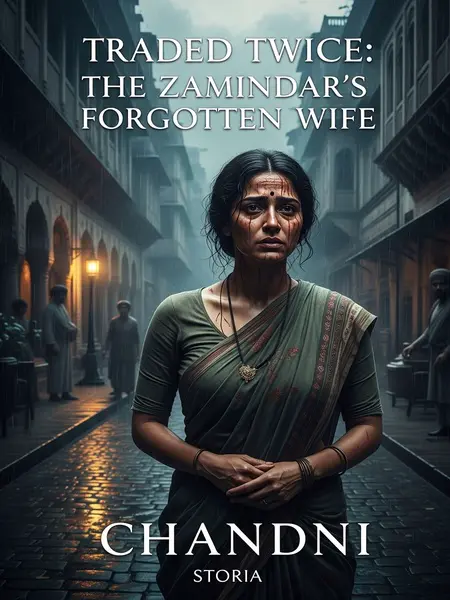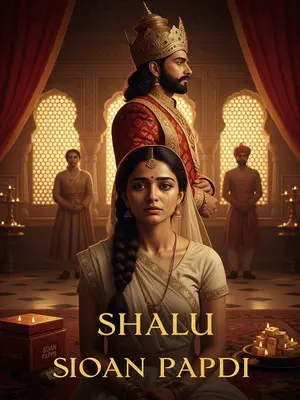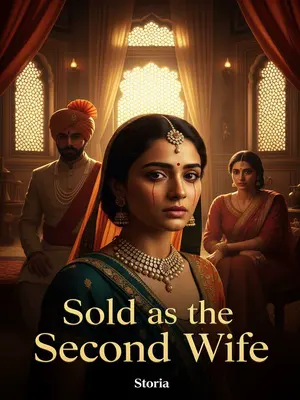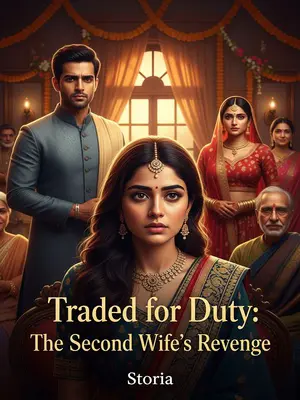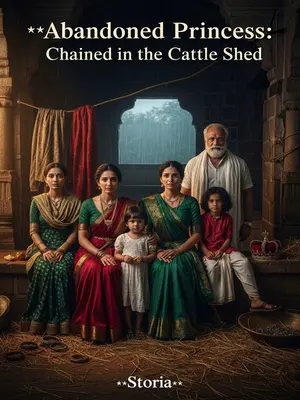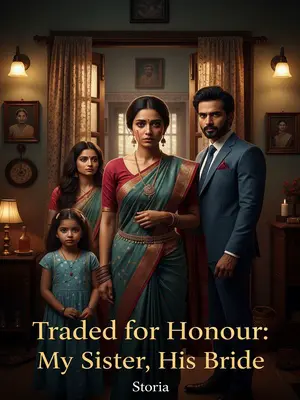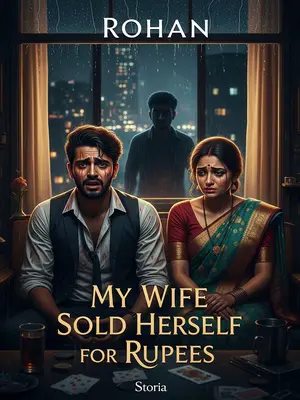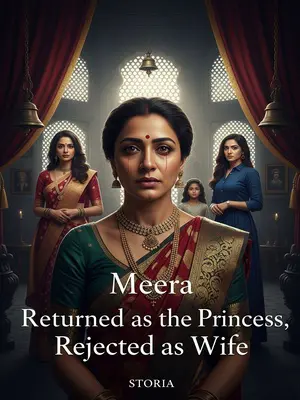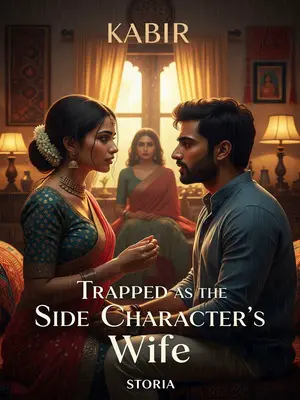Chapter 4: The Last Humiliation
Now, I refuse to undress in front of everyone again.
Years of shame and scrutiny had taught me the value of dignity. I drew my dupatta tighter, eyes blazing with silent rebellion. Let them gossip, let them judge—I would not surrender again.
After following him for twelve years, I bore him twelve children, but only two sons—five or six years old—survived.
Each birth was a battle, each child a prayer answered or denied. The doctor’s visits, the fasting, the endless rituals—nothing could keep death at bay. I watched ten tiny pyres burn, my heart shrinking with each loss.
Today, they are here too.
My two sons—Arun and Ravi—stood in the corner, dressed in spotless kurta-pajamas, their faces a mixture of innocence and uncertainty. Their eyes flickered to me, then away, as if they were ashamed to acknowledge our bond.
No, I cannot.
I pressed my hands together in silent supplication, pleading with the gods to spare me this final humiliation. My strength was nearly spent, but my resolve held firm.
Even though they do not call me mother.
They called me Chandni didi, never Maa. Sometimes, late at night, I would hear them whispering about their real mother, wondering when she would return. My heart broke a little more each time.
The zamindar always told them their mother was recuperating elsewhere and would return soon.
He spun stories of a sickly mother in a distant ashram, painting her as a tragic heroine. The children clung to this fiction, their longing for a mother’s love redirected away from me.
Now, they treat Meera Sharma, soon to enter the zamindar’s household, as their real mother.
Meera, with her gentle smile and soft hands, had already won them over. They followed her like ducklings, eager for every scrap of affection she tossed their way. I watched from afar, my presence barely tolerated.
Seeing me refuse,
the eldest rushed over: "Bad woman! Sister Ritu said you spend my father’s money every day—a drop of your hair oil costs a gold coin, and you grind pearls worth a fortune into powder for your belly. You must have taken my mother’s things too!"
He stamped his foot, little chest heaving with borrowed anger. But behind the bravado, his eyes flickered with confusion. I reached out, but he looked away, jaw clenched, as if ashamed for both of us.
I stepped back.
The world tilted. My feet found only emptiness behind me, as if the ground itself had betrayed me. My arms trembled, clutching the jewellery box like a shield.
But behind me was the second son.
He had always been quieter, more hesitant. But today, emboldened by his brother and the ayah’s whispers, he raised his hand in anger.
He struck my waist hard: "Bad woman, ayah said you seduced my father and made my mother unhappy. Now you want to take my mother’s things—give them back!"
His small palm stung, not from the force but from the intent. For a moment, after the slap, his face crumpled in confusion—like he wasn’t sure if he’d done the right thing. I gasped, tears prickling my eyes, but I held them back, unwilling to give them the satisfaction.
My heart ached again and again.
Each accusation, each rejection, tore another hole in my soul. I wondered if I had ever truly been a mother, or just a vessel for someone else’s legacy.
These are the children I struggled so hard to keep alive.
I remembered the feverish nights, the endless prayers, the fear that each cough would be their last. I had bartered with the gods, offering up fasts and tears, begging for a future I would never see.
These are the children I bore, hiding away in the kothi, enduring for my life.
I had shielded them from the world, from the ayah’s cruelty, from their father’s indifference. My own body bore the scars of their births—marks I wore with pride and sorrow.
The ayah smiled mockingly.
She shook her head, clucking her tongue. “See? Even the boys know what’s right. Let’s have a look at that box now, shall we?” Her satisfaction was palpable, her eyes gleaming with victory.
"Oh, feeling guilty? Clutching it so tightly—looks like we really do need to check this box."
She reached out, her bangles jingling, as if this was just another routine task. I tightened my grip, unwilling to let go.
There was a flicker of suspicion in the zamindar’s eyes as well.
He frowned, his jaw tightening. The room grew tense, the servants holding their breath as they awaited his verdict. I saw in his face the old distrust, the readiness to believe the worst of me.
"Is there really something hidden inside?" His voice was cold. "Since I promised to let you choose one thing, whether it’s a family heirloom or a priceless treasure, I won’t go back on my word. But if you’re greedy, I won’t let you off lightly. Such sneaky behaviour—are you trying to ruin my reputation as zamindar?"
His words stung. Even now, he worried more about his standing in the mohalla than about my dignity. The weight of his accusation pressed down on me like the summer heat.
With that, he reached out to seize it.
His hand moved faster than I expected, snatching at the box. In my panic, my grip loosened, and the box tumbled to the ground, its contents spilling out in a cascade of silk and sorrow.
The box fell to the ground, and out spilled exquisite Banarasi silk pouches.
The pouches landed softly, their vibrant colours startling against the dull stone. The air was heavy with anticipation, every eye glued to the floor.
The ayah was overjoyed: "So there really is something! This little vixen packed ten bags."
Her glee was unmistakable. She bent down, quick as a squirrel, snatching up the pouches. The other servants inched closer, craning their necks for a better look.
She opened them, but did not understand: "Why is it ash?"
She pinched the contents between her fingers, sniffing suspiciously. Her confusion grew, and she looked up, baffled. The room fell silent, the air thick with uncertainty.
At these words, the zamindar’s face changed.
His eyes widened, then shuttered. I saw the memory flicker in his gaze—the funerals, the tiny bundles of cloth, the silent processions through the back gate. He turned away, his face pale.
He already knew what was inside.
He could not meet my eyes. For the first time, I saw regret written on his face, raw and unmistakable.
Ten silk pouches, each containing the ashes of one of my ten children who died young.
The weight of those pouches, heavier than any gold, pressed against my heart. Each one held the memory of a life snuffed out too soon, a grief too vast for words.
I bowed my head, tears falling to the floor one by one.
My tears, silent and unending, splattered on the cold stone. I let them fall, unashamed, for once allowing my grief to be seen.
Arjun sighed softly.
For a brief moment, I thought he might comfort me. But he only looked away, unwilling to share my sorrow.
He waved his hand, no longer checking.
He dismissed the servants with a tired gesture, his authority undimmed even in the face of tragedy. The room emptied, leaving us alone in the echoing silence.
"Enough, go. I know you can’t bear to leave, but Meera and I are deeply in love, and I owe her too much. I must make it up to her."
His words were final, his tone devoid of pity. My place in his life, always conditional, now evaporated altogether.
"I’ve already chosen a good family for you. He is Ritu’s chacha, has few heirs, and you are good at bearing children. If you give him a child, for my sake, the Sharma family will surely grant you the title of second wife."
The arrangement was made with the same indifference as a land deal. My future, bartered once more for family convenience. I said nothing, my silence louder than any protest.
